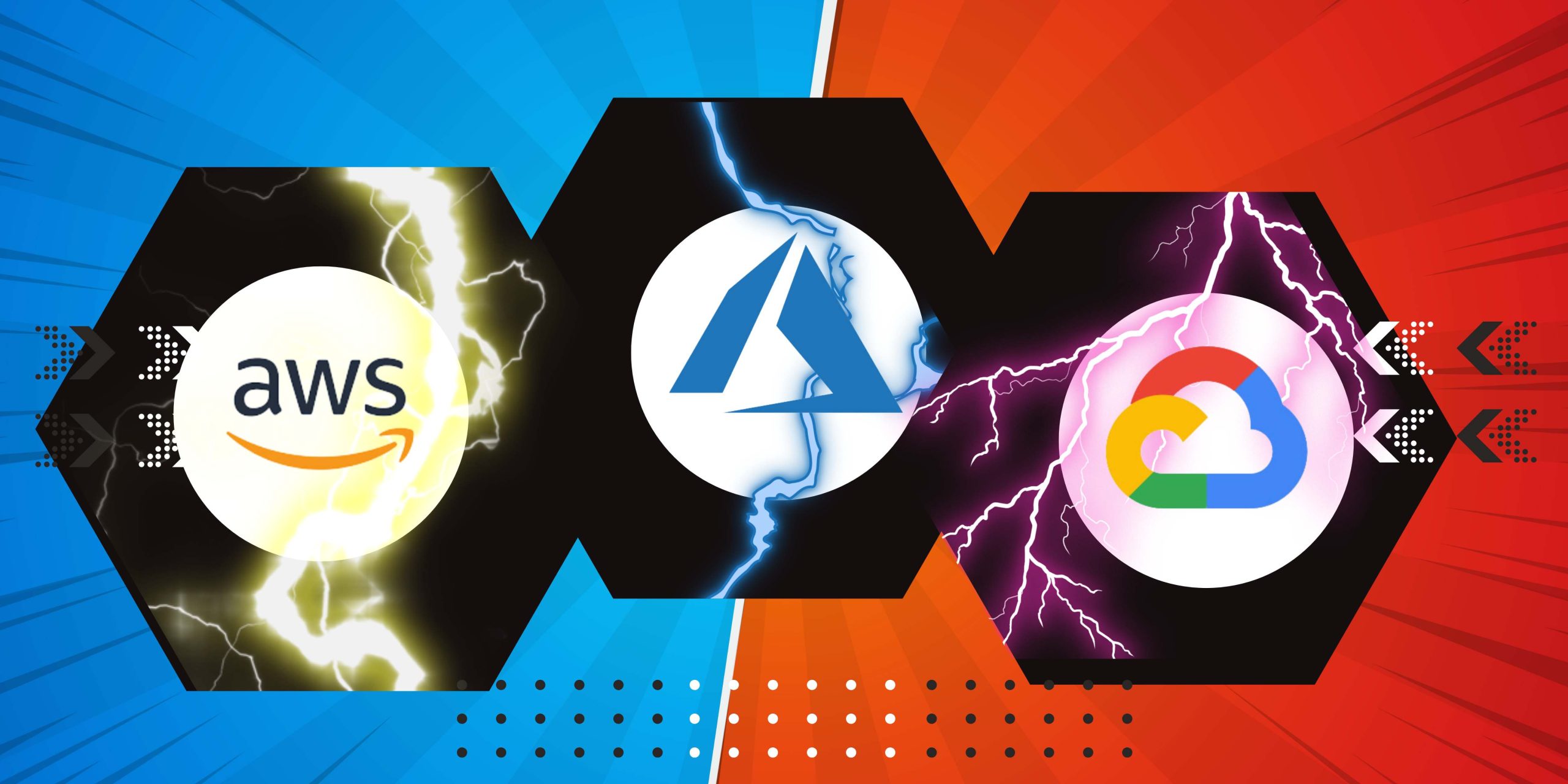AWS vs. Azure vs. Google Cloud - A Comprehensive Vendor Comparison
As organizations transition to the cloud, they often face the decision of choosing the right cloud provider to meet their specific needs. Amazon Web Services (AWS), Microsoft Azure, and Google Cloud Platform (GCP) are among the leading cloud providers, each offering a unique set of services and capabilities. In this blog post, we will compare AWS, Azure, and Google Cloud across various dimensions to help you make an informed decision.
Key selection criteria include:
- Existing tech stack and vendor relationships
- Service offerings required (IaaS, PaaS, SaaS)
- Global footprint and geographic coverage
- Hybrid, multi-cloud capabilities
- Data analytics, AI/ML capabilities
- Developer tools and ecosystem
- Security, compliance, and governance needs
Rather than declare one vendor the “winner”, the optimal choice depends on aligning business needs with the strengths of each platform. Thoroughly evaluate your application architecture, workload requirements, and long-term roadmap when choosing a cloud provider.
1. Market Share and Popularity:
AWS: As one of the earliest cloud providers, AWS boasts a significant market share and a vast customer base, including start-ups, enterprises, and governments.
Azure: Microsoft’s Azure has gained traction due to its integration with Microsoft’s existing enterprise software offerings, making it popular among businesses already using Microsoft products.
Google Cloud: Google Cloud is known for its robust data analytics and machine learning capabilities, attracting businesses looking to harness advanced technologies.
2. Service Offerings:
AWS: Offers a broad range of services, including compute, storage, databases, machine learning, analytics, IoT, and more.
Azure: Provides a comprehensive set of services, especially appealing to businesses using Microsoft software like Windows Server, Office, and Active Directory.
Google Cloud: Stands out for its expertise in data analytics, machine learning, and container orchestration through Kubernetes.
3. Pricing Model:
AWS: Offers a pay-as-you-go model with various pricing options, including on-demand, reserved instances, and spot instances.
Azure: Provides flexible pricing options and discounts for longer-term commitments, along with a pay-as-you-go model.
Google Cloud: Offers a pay-as-you-go model with sustained use discounts and committed use contracts.
4. Global Infrastructure:
AWS: Has a vast global network of datacentres, allowing you to choose from numerous regions and availability zones.
Azure: Offers a global network of datacentres, with a strong presence in multiple regions around the world.
Google Cloud: Expanding its global footprint rapidly, with a focus on performance, data analytics, and machine learning.
5. Hybrid and Multi-Cloud Capabilities:
AWS: Provides hybrid capabilities through AWS Outposts and AWS Direct Connect for seamless integration with on-premises environments.
Azure: Offers Azure Arc for managing resources across on-premises, multi-cloud, and edge environments.
Google Cloud: Supports hybrid and multi-cloud scenarios through partnerships and Kubernetes-based solutions.
6.Data Analytics and AI/ML:
AWS: Offers a range of analytics services, including Amazon Redshift for data warehousing and Amazon Sage Maker for machine learning.
Azure: Provides tools like Azure Synapse Analytics and Azure Machine Learning for comprehensive data analytics and AI/ML capabilities.
Google Cloud: Stands out with its Big Query data warehousing and AI/ML offerings, leveraging Google’s expertise in these areas.
7.Developer-Friendly Features:
AWS: Offers a robust set of developer tools, including AWS Lambda for serverless computing and AWS CloudFormation for infrastructure as code.
Azure: Provides Visual Studio integration, Azure Functions for serverless computing, and Azure DevOps for application lifecycle management.
Google Cloud: Features Google Kubernetes Engine for container orchestration and Cloud Functions for serverless computing.
8.Security and Compliance:
AWS: Provides a range of security services, including identity and access management, encryption, and compliance certifications.
Azure: Offers comprehensive security features, including Azure Active Directory and Azure Security Center for threat detection and compliance.
Google Cloud: Emphasizes security through services like Google Cloud Identity and Access Management and Cloud Security Command Center.
Conclusion
Choosing between AWS, Azure, and Google Cloud depends on your organization’s specific requirements, existing technology stack, and long-term goals. While AWS offers a wide range of services and established market presence, Azure integrates seamlessly with Microsoft products, and Google Cloud excels in data analytics and machine learning. To make the right decision, consider factors such as your application needs, data analytics requirements, developer preferences, and budget considerations. Each cloud provider has its strengths, so assessing which aligns best with your business objectives will lead you to the optimal choice for your cloud journey.

